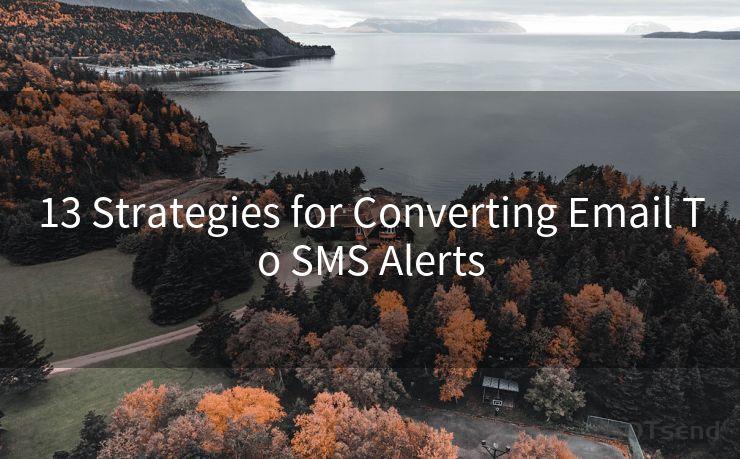13 Strategies for Converting Email To SMS Alerts




In today's fast-paced world, receiving timely notifications is crucial for effective decision-making. While emails have been a traditional communication tool, SMS alerts provide a more immediate and direct way to reach people. Converting email notifications to SMS alerts can significantly improve response times and ensure critical information is not missed. Here are 13 strategies to help you make this transition effectively:
1. Identify Critical Emails
The first step is to determine which emails are critical enough to require SMS alerts. This could include order confirmations, urgent updates, or security alerts.
2. Choose an SMS Gateway
Select a reliable SMS gateway service that can integrate with your existing email system. Look for a service that offers robust APIs and reliable delivery.
3. Set Up Email Forwarding Rules
Configure your email system to forward specific emails to the SMS gateway based on predefined rules, such as sender, subject, or keyword filters.
4. Format SMS Content
Since SMS messages are limited in length, ensure that the forwarded content is concise and to the point. You may need to truncate or summarize the email content.
5. Test and Optimize
Conduct thorough testing to ensure that emails are correctly forwarded as SMS and that the content is readable and actionable on a mobile device.
6. Consider Two-Way Communication
If possible, enable two-way SMS communication so recipients can respond directly to alerts, improving efficiency and response time.
7. Privacy and Security
Ensure that your SMS gateway provider complies with privacy and data security standards, especially if sensitive information is being transmitted.
8. User Education
Inform your users about the new SMS alert system and educate them on how to interpret and respond to the messages.
9. Feedback Loop
Implement a feedback mechanism for users to report issues or suggest improvements to the SMS alert system.
10. Monitor and Adjust
Regularly monitor the performance of the SMS alerts, including delivery rates, response times, and user satisfaction. Make adjustments as needed.
11. Cost-Benefit Analysis
Periodically assess the cost-effectiveness of the SMS alert system compared to traditional email notifications.
12. Integration with Other Systems
Explore integrating SMS alerts with other business systems, such as CRM or ERP, for a more holistic communication strategy.
13. Iterative Improvement
🔔🔔🔔
【AOTsend Email API】:AOTsend is a Managed Email Service for sending transactional emails. Support Email Types: reminders, authentication, confirmations, notifications, verification codes, invoices, password resets, account activations, billing statements, two-factor authentication (2FA), and one-time passwords (OTP) emails, etc. $0.28 per 1000 Emails. 99% Delivery, 98% Inbox Rate.
You might be interested in:
Why did we start the AOTsend project, Brand Story?
What is a Managed Email API, How it Works?
Best 25+ Email Marketing Platforms (Authority,Keywords&Traffic Comparison)
Best 24+ Email Marketing Service (Price, Pros&Cons Comparison)
Email APIs vs SMTP: How they Works, Any Difference?
Technology and user preferences evolve, so it's essential to continually refine and improve your SMS alert system.
By following these 13 strategies, you can effectively convert email notifications to SMS alerts, ensuring timely and efficient communication with your team or customers. Remember, the key is to strike a balance between providing critical information quickly and avoiding information overload.
In conclusion, converting email to SMS alerts is a powerful way to enhance communication efficiency and responsiveness. By implementing these strategies, you can ensure that important messages are received and acted upon promptly, leading to better decision-making and outcomes for your business or organization.





Scan the QR code to access on your mobile device.
Copyright notice: This article is published by AotSend. Reproduction requires attribution.
Article Link:https://www.mailwot.com/p1632.html



